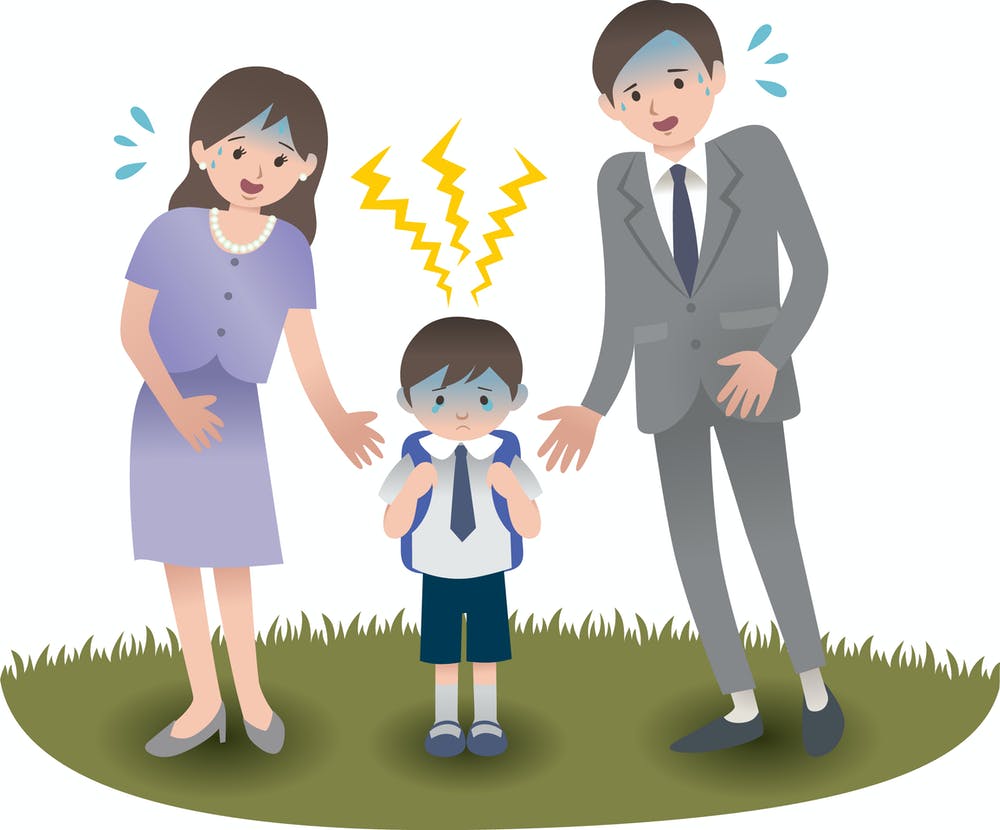Children are not immune to anxiety. Many children experience some form of anxiety (children’s anxiety) disorder at one point in their lives. Anxiety disorders affect about 15% of all children and adolescents under the age of 18 years old in the United States.
According to data from a 2014 study published by the Journal for Clinical Child Psychology and Psychiatry, nearly 2 million American children have an anxiety disorder (children’s anxiety) – one out of every eight!
The good news is that there are several methods parents can use when trying to manage their child’s anxious behavior. This blog post will discuss the different types, causes, symptoms, treatment options for childhood anxiety disorders.
Contents
- 1 Understanding Children’s Anxiety
- 2 Treatment Options For Children’s Anxiety
- 3 Children’s Anxiety FAQs
- 3.1 What are some common mistakes parents make when trying to help their anxious children?
- 3.2 What parents need to remember who has a child who is dealing with anxiety?
- 3.3 What are some helpful anxiety management techniques for children?
- 3.4 What are some of the long-term effects of untreated anxiety in children?
- 4 Expert Comments On Children’s Anxiety
- 5 Conclusion
- 6 A Word From Therapy Mantra
Understanding Children’s Anxiety
Children’s anxiety is considered a normal response to stress and fear. It typically occurs in predictable situations such as attending school or visiting the doctor’s office.
Anxiety Disorder Vs. Normal Anxiety
Anxiety disorders are more severe than the normal fears and anxieties that children experience. They can cause significant impairment in a child’s life and affect their ability to attend school, make friends, or participate in activities they enjoy.
Common Causes of Childhood Anxiety Disorder
There is no one answer to this question as every child’s experience with anxiety is unique. However, some common causes of a childhood anxiety disorder include:
- Traumatic life events such as a death in the family, divorce, or moving
- Family history of mental health disorders such as schizophrenia or bipolar disorder
- Chronic illnesses such as asthma, diabetes, and epilepsy
- Environmental factors such as bullying at school or excessive media use
NOTE: Children’s anxiety can also be caused by certain medications. These include beta-blockers for conditions like ADHD (Attention Deficit Hyperactivity Disorder) and blood pressure medication. There is also a small risk that certain types of antidepressant medications can cause anxiety in children.
Types of Anxiety Disorders Children Experience
Anxiety is one of the most common mental health problems for children and adolescents. It can affect their daily lives, making them feel isolated and withdrawn from friends and activities they used to enjoy.
There are several different forms of childhood anxiety disorder including:
Panic Disorder
Children with panic disorder may have recurring, unexpected panic attacks and worry about when their next attack will happen. They also tend to avoid places where they fear another attack could occur. The symptoms of a panic attack include feelings of extreme terror that strike suddenly without warning, along with physical symptoms such as a racing heartbeat, sweating, and shaking.
Social Anxiety Disorder
Children with social anxiety disorder feel extremely anxious and self-conscious in social situations. They often have a fear of being judged or ridiculed by others. This can cause them to avoid school, camp, and other activities where they will be around other people.
Obsessive-Compulsive Disorder (OCD)
This is a disorder where a child experiences intrusive, obsessive thoughts and compulsive behaviors that they feel they need to do to relieve their anxiety. It can cause them to worry excessively about germs, doing things in the exact right way or order, being perfect at all costs, etc.
Separation Anxiety Disorder
Children with separation anxiety disorder are extremely fearful of being away from home or separated from their parents. They typically refuse to go to school, sleep away from home, or attend other activities without their parents. Separation anxiety disorder is very common in young children and tends to improve as they get older.
Panic Disorder with Agoraphobia
Agoraphobia causes people to avoid situations where they feel vulnerable or unable to escape if something were to go wrong. This can include things like being in a crowded place, on a bus or train, or in a large building. For children with panic disorder and agoraphobia, this fear can be so extreme that they may become completely housebound.
Generalized Anxiety Disorder (GAD)
This is when children feel anxious about everything all the time, which means they have trouble focusing on school or anything else that might be going on in their lives because their thoughts are always focused on potential threats and dangers instead of what’s happening around them.
Common Symptoms of Anxiety Disorders In Children
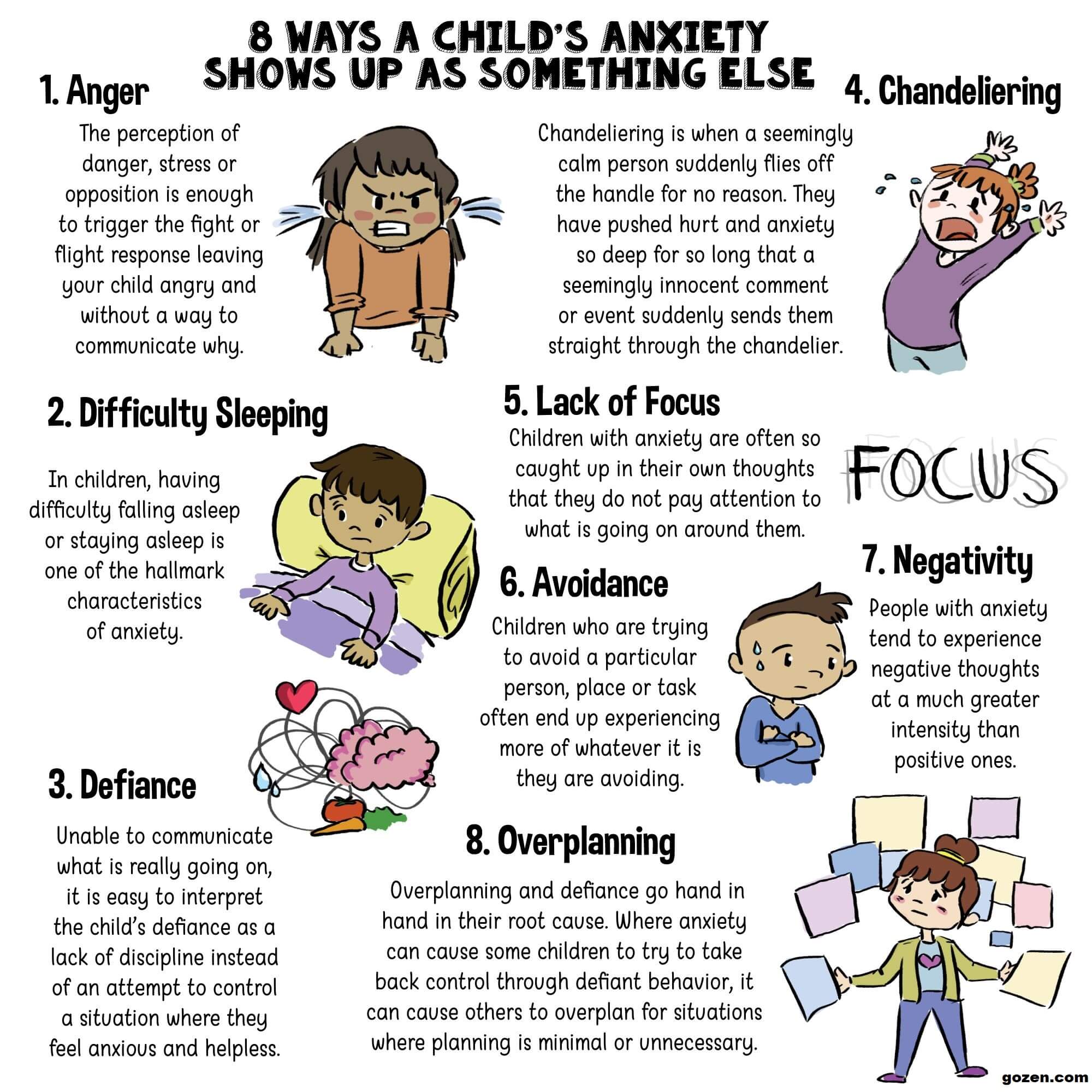
The signs and symptoms of childhood anxiety disorders can vary depending on the child, but here are some common signs to look for:
- Unexplained physical complaints such as headaches or stomach aches
- Changes in eating habits like not wanting to eat at all or overeating
- Excessive tiredness and changes in sleeping patterns
- Difficulty concentrating and trouble to learn in school
- Withdrawn or isolated behavior
- Irritability and mood swings
- Excessive worrying or fearfulness about everyday things
NOTE: It is common for children to have more than one anxiety disorder at the same time. For example, they may experience both social phobia and separation anxiety. This does not necessarily indicate that their other problems are less severe. The most important thing is to recognize the symptoms and get them treated. Also, children with Tourette Syndrome or chronic tic disorders can experience severe phobias that are separate from their other symptoms.
If My Child Has An Anxiety Disorder
If you think your child may have an anxiety disorder, the best thing to do is talk to them about it and take them to see a mental health professional. It can be difficult for children to admit they are struggling and they may not even realize that their symptoms are abnormal. It is important for parents to be supportive and understanding, but also to be open about the treatment options.
When It’s Time For Professional Help
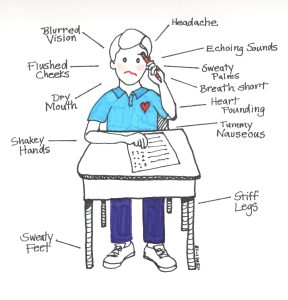
If you are concerned about your child’s behavior or think they may have an anxiety disorder, it is important to consult with a mental health professional. Some signs that it may be time to seek help include:
- The child’s anxiety is causing them significant distress or interfering with their daily life
- The child has been experiencing symptoms for more than six months
- The child’s anxiety is accompanied by other mental health disorders such as depression or OCD (Obsessive Compulsive Disorder)
- The child’s anxiety is caused by a traumatic event such as a death in the family
Parents should consult a mental health therapist or counselor if their child’s anxious behavior is excessive and prevents them from participating in normal activities. For example, parents should consider seeking outside help if they notice that their child frequently experiences panic attacks during school hours. Additionally, it can be difficult to identify whether your child has an anxiety disorder or is simply experiencing normal fear and stress. If you are unsure, it is always best to consult with a professional.
Treatment Options For Children’s Anxiety
Kids are usually able to overcome childhood anxiety disorders with professional help from a mental health counselor or therapist. There are several different types of therapies that may work for your child, including medications depending on the severity of the case.
Help For Kids With Anxiety
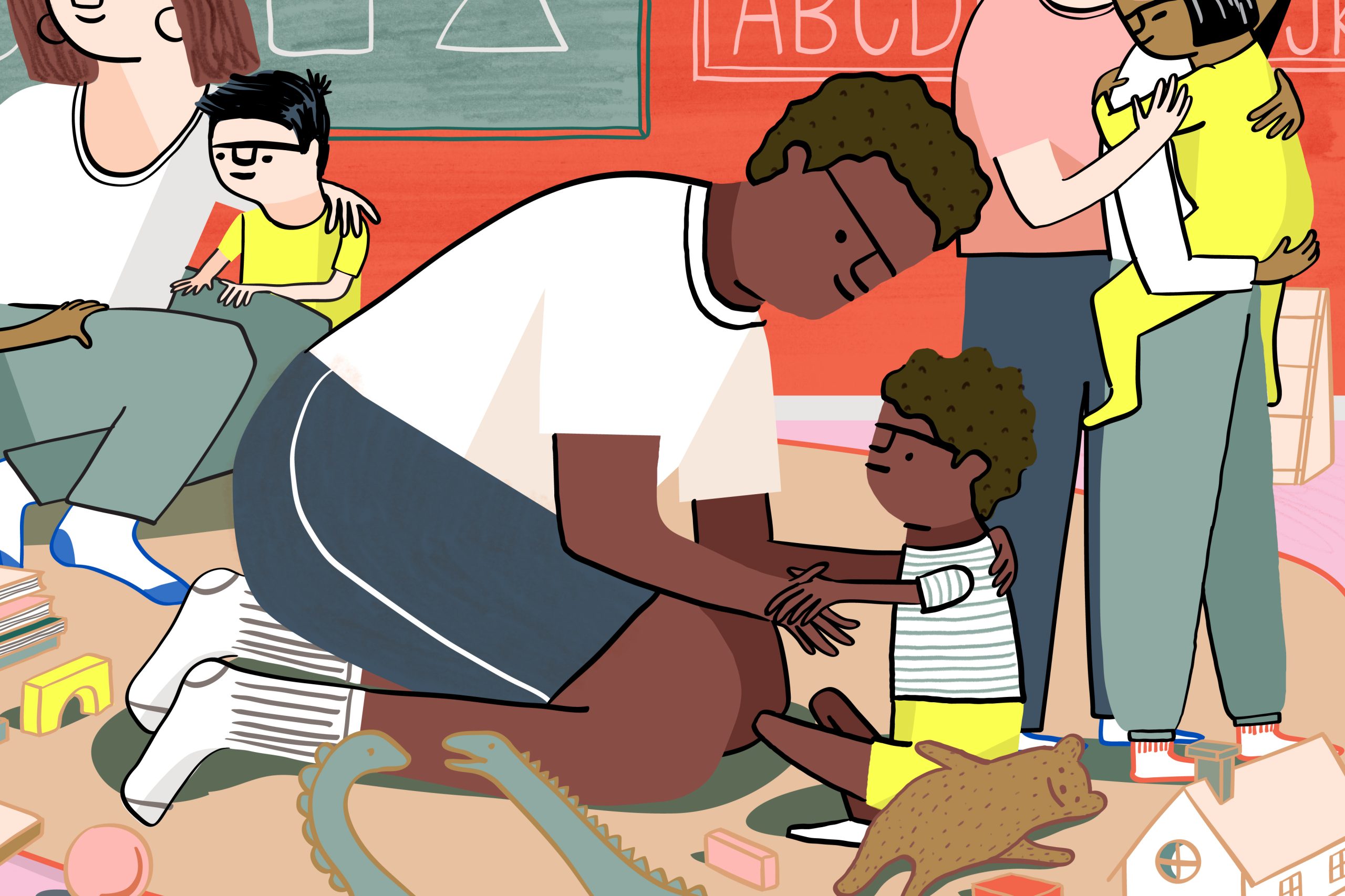
Even if your child is not currently receiving professional help for their anxiety disorder, there are still things you can do at home to help them cope. The most important thing is to be understanding and supportive, but don’t minimize their feelings or tell them that they shouldn’t feel the way they do.
It’s also really important for kids with anxiety disorders to get enough sleep each night because this helps regulate certain hormones in the body associated with mood regulation. Getting plenty of healthy exercises is also important for children with anxiety because it releases endorphins in the brain that help improve mood.
Helpful Parenting Tips For Children With Anxiety
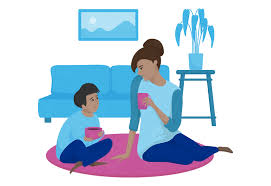
There are many different ways parents can help their child with an anxiety disorder at home, but one of the most important things to remember is that having an anxious child does not mean you are a bad parent.
Some helpful parenting tips for children who have anxiety include:
- Allowing your child the freedom to avoid certain situations if it makes them uncomfortable, but encouraging them to face their fears over time instead of avoiding everything they find difficult;
- Teaching your child how to recognize and manage their anxious thoughts with relaxation techniques like deep breathing;
- Encouraging a healthy lifestyle by getting plenty of sleep, exercise, and a nutritious diet.
Tips For Teaching Kids About Anxiety
It’s important to remember that children are still learning how the world works at a young age, which means they need help to figure out what is normal and expected in certain situations. This often leads anxious children to be confused or frightened when faced with something unfamiliar because they don’t know how to interpret their feelings or how to act in certain situations.
One way you can help your child learn about anxiety is by teaching them the difference between everyday anxiety and Anxiety Disorder so they understand what kind of feelings are appropriate for different situations. Another helpful tip is encouraging your children to talk openly with their classmates or other adults if they’re feeling anxious during social events.
Types of Therapies For Children With Anxiety Disorders
There is no one-size-fits-all answer to this question as different therapies will work better for different children. However, some common therapies that are used to treat anxiety disorders in kids include:
Cognitive-Behavioral Therapy (CBT)
This is a type of therapy that helps children learn how to identify and change the thoughts and behaviors that contribute to their anxious feelings.
Exposure Therapy
This therapy helps children confront the things that scare them and teaches them how to cope with their fears.
Behavioral Therapy
This type of therapy helps kids learn new behaviors to replace the ones they display when they are anxious.
Interpersonal Psychotherapy (IPT)
This type of therapy helps kids understand and manage the relationships they have with the important people in their lives.
Family Therapy
This type of therapy helps parents and children work together to identify and address the issues that might be contributing to the child’s anxiety disorder.
Medication
In some cases, medication may also be prescribed to help manage symptoms of anxiety. However, it is typically only used when all other treatment options have been exhausted and the anxiety is impacting a child’s ability to function in everyday situations.
Children’s Anxiety FAQs
What are some common mistakes parents make when trying to help their anxious children?
One of the most common mistakes parents make is encouraging their child avoid whatever they fear instead of facing it head-on. Avoidance reinforces the idea that your child is unable to face their fears and it only makes them more afraid next time.
Instead, parents should encourage their children to gradually approach what they fear instead of running away from it. This could mean taking small steps like walking up a few stairs before going back down or slowly making eye contact with someone who makes them anxious.
This is the best way to teach children how to manage their anxiety so they can confront what scares them in a healthy, appropriate way in the future.
What parents need to remember who has a child who is dealing with anxiety?
One thing every parent should keep in mind when helping their anxious child through difficult times is that it’s important not to minimize your child’s feelings or tell them their fears aren’t real.
It’s also important to pay attention and take your child seriously when they talk about their difficulties, even if it seems like something that isn’t a big deal to you. This is how kids learn the language of emotions and start to understand what makes them feel anxious or uncomfortable in different situations.
What are some helpful anxiety management techniques for children?
Anxiety is a normal emotion that everyone experiences at different times. It’s often caused by stress or difficult situations, but this doesn’t mean it has to control someone’s life. There are many ways kids can learn how to manage their anxious feelings so they don’t have as much control over them.
Some of these techniques include:
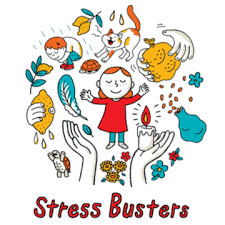
- Identifying what triggers their anxiety and avoiding those things whenever possible;
- Learning how to deep breathe and relax their muscles when they start to feel anxious;
- Challenging their thoughts by asking themselves whether the fear is rational or not, and looking for evidence that supports or disproves their fears;
- Journaling about their thoughts and feelings to help them understand what’s going on inside their head.
What are some of the long-term effects of untreated anxiety in children?
If left untreated, childhood Anxiety Disorder can have a lasting impact on a person’s life.
- They may find it difficult to make friends or maintain relationships, they may struggle in school or at work, and they may turn to drugs or alcohol as a way to self-medicate.
- Untreated anxiety can also lead to mental health conditions like depression or Obsessive Compulsive Disorder (OCD) later in life.
It’s important to get help for your child if you think they’re struggling with anxiety so they can reverse the negative consequences.
Expert Comments On Children’s Anxiety
“As children grow, their fears change and evolve. Some of the most common childhood anxiety disorders include fear of separation from parents or loved ones, fear of doing poorly in school or sports, fear of getting sick or injured, and extreme worry about family members dying.”
-Dr. Jim Taylor (Anxiety BC)
Case Study On Children’s Anxiety
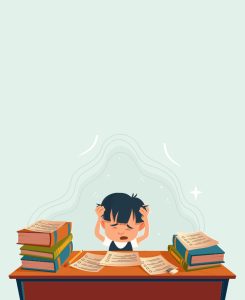
Sarah is a nine-year-old girl who has been struggling with anxiety for the past two years. She often has trouble sleeping and her fears have gradually gotten worse over time.
Her parents brought her to see a therapist because they were worried about how her anxiety was impacting her life. After doing an assessment, it was determined that Sarah met the criteria for an Anxiety Disorder.
The therapist worked with Sarah and her parents to come up with a treatment plan that would help her manage her anxiety. This included therapy, medication, and education about anxiety and how to deal with it.
Sarah’s parents were also given tips on how to help their daughter when she was feeling anxious. And they were taught strategies to help her relax when she was feeling particularly overwhelmed.
Over several months, Sarah’s anxiety decreased significantly. And she no longer felt as though it had a hold over her life. She started sleeping through the night again, made friends at school for the first time. And managing all of her fears without feeling overwhelmed.
Conclusion
Anxiety is a normal emotion that everyone experiences at different times. But it can become a problem when the fear is too much to handle. If you’re struggling with your child’s anxiety or think they might be showing signs that indicate an Anxiety Disorder, speak with your doctor about treatment options. And don’t hesitate to seek professional help for them.
A Word From Therapy Mantra
Your mental health — Your psychological, emotional, and social well-being — has an impact on every aspect of your life. Positive mental health essentially allows you to effectively deal with life’s everyday challenges.
At TherapyMantra, we have a team of therapists who provide affordable online therapy to assist you with issues such as depression, anxiety, stress, workplace Issues, addiction, relationship, OCD, LGBTQ, and PTSD. You can book a free therapy or download our free Android or iOS app.
